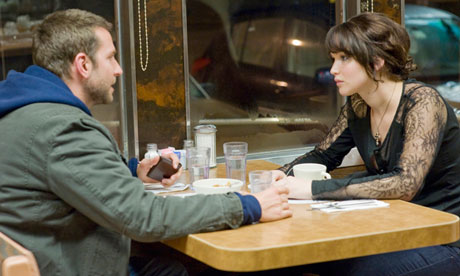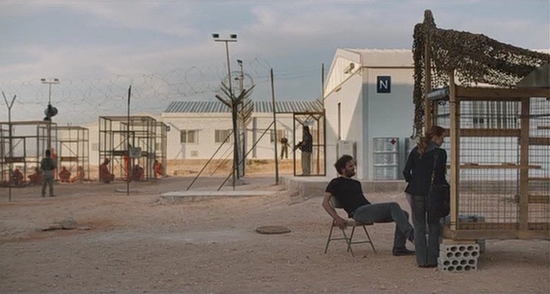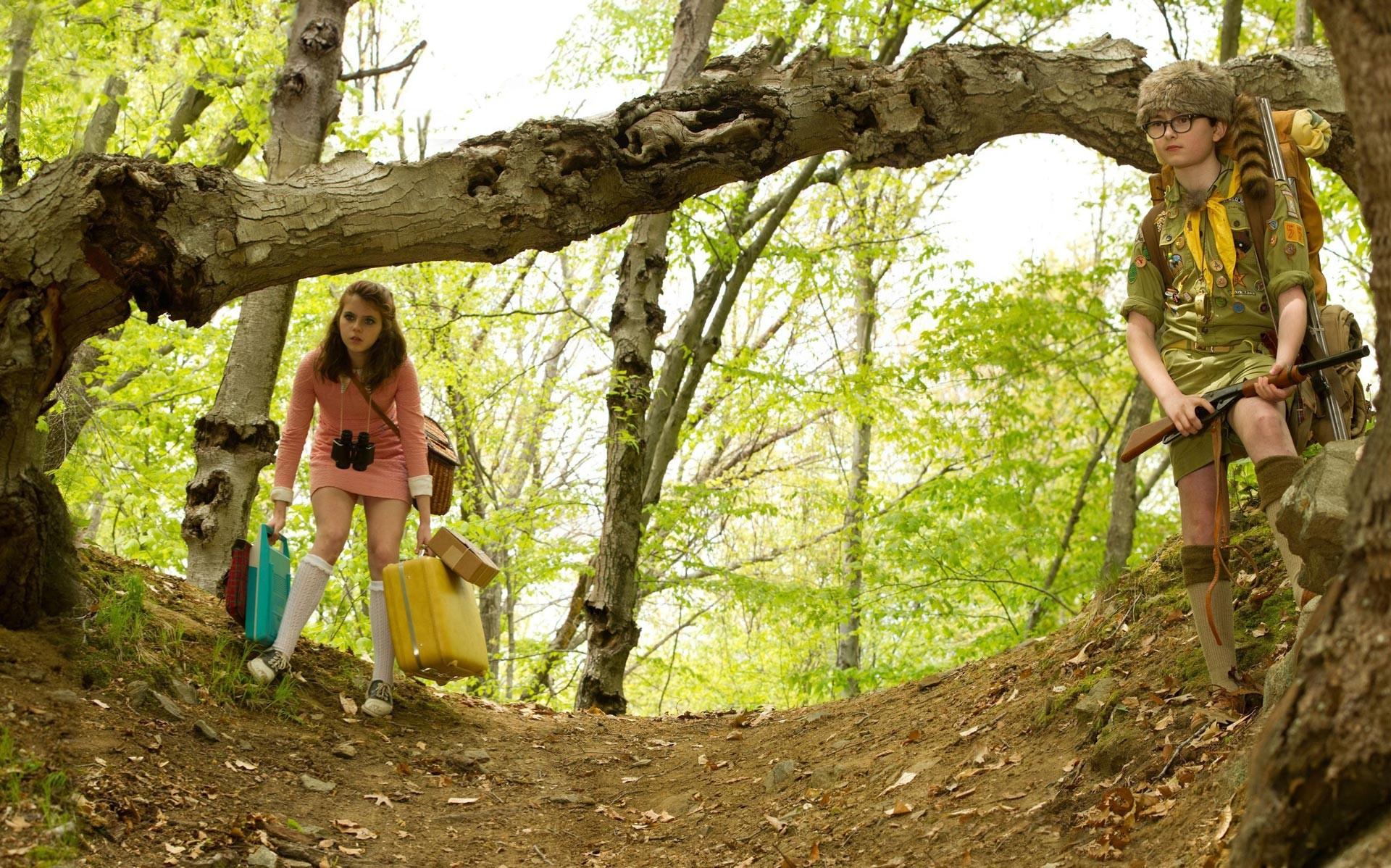BEST ADAPTED SCREENPLAY
Argo; screenplay by Chris Terrio
Based on a declassified article by Joshuah Bearman, Terrio's script deftly balances thrills and humor with aplomb. My major quibble with it is that it does oversimplify the politics of the era, and at times it feels a little clumsily written in terms of characterization. However, like others, I hardly find fault with the script's liberties with the truth; it is a movie, after all. Still, it crackles with suspense, and Terrio could end up winning on his first nomination if Argo's momentum continues.
Lincoln; screenplay by Tony Kushner
Leave it to Tony and Pultizer Prize-winning playwright Kushner to craft the best screenplay of the year. Based in part on Doris Kearns Goodwin's book "Team of Rivals," Kushner's script takes what could have been a musty history lesson into a tight historical thriller, painting a portrait of Lincoln as president and as a man by narrowing it's focus on a single event (an approach more biopics should take). It's a brilliant work, and Kushner still has a slight lead in a tight race for the prize.
Beasts of the Southern Wild; screenplay by Benh Zeitlin & Lucy Alibar
It's somewhat ironic that the year's most imaginative film was based on an adapted screenplay. Based on Alibar's one-act play "Juicy and Delicious," the script flourishes with the kind of magical realism that comes from the mind of a child, viewing post-Katrina Louisiana from the lens of a six-year-old girl who's never known another life. While much of what makes the film special comes from the film's visuals, that magic is rooted in a strong and intelligent script that also finds room to explore the dynamic between Hushpuppy and her father, Wink. It could pull a surprising upset, but I don't think it's that likely.
Silver Linings Playbook; screenplay by David O. Russell
Of all the elements in SLP, the screenplay is absolutely the weakest. In adapting Matthew Quick's 2008 novel of the same name, the film runs the gamut of a ton of ideas without spending enough time in developing any of them in a way that makes sense. It shifts between modes so wildly that it can induce whiplash: at times, the strength of the writing rivals that of Lincoln (the scene where Tiffany confronts Pat Sr. immediately springs to mind), while other scenes are abysmal. It is very possible that this could win if the Academy goes SLP-crazy, and at this point, I wouldn't be surprised if they did.
Life of Pi; screenplay by David Magee
For years after Yann Martel's novel of the same name was published in 2002, it was considered to be unfilmable. Of course, that's never stopped Hollywood from trying anyway, and luckily it fell into the hands of Magee. The framing device remains a little clunky in the beginning, but once the various pieces are established the script really takes off. Like Beasts, much of the film's success comes from the visuals, but Magee has crafted a fine structure to support those indelible images. Magee is a little more of a longshot for a win, but if Life of Pi dominates, he could very well find himself thanking the Academy for the first time.
My ballot:
1. Lincoln; screenplay by Tony Kushner
2. Beasts of the Southern Wild; screenplay by Benh Zeitlin & Lucy Alibar
3. Argo; screenplay by Chris Terrio
4. Life of Pi; screenplay by David Magee
5. Silver Linings Playbook; screenplay by David O. Russell
Will win: Lincoln
Spoilers: Argo, Life of Pi, or Silver Linings Playbook
BEST ORIGINAL SCREENPLAY
Amour; written by Michael Haneke
Haneke gained a lot of attention with this script, in which many critics took note of being "softer" than his previous films. However, saying that this is a gentler Haneke misses what he's accomplished in this brilliant script: he presents age as the ultimate violent aggressor, let us watch as it physically, mentally, and spiritually destroys the couple at the center of the film. It's a sparse script, but one that's more than effective. This category is wide open this year, and is the most likely place for Haneke to win outside of Best Foreign Language Film.
Django Unchained; written by Quentin Tarantino
Tarantino is one of my favorite writers and directors. I love the way he blends and riffs on his favorite films, making unique cinematic experiences that function on multiple levels. However, many of the problems that I had with Django are script issues: a sprawling lack of narrative focus, very problematic characterizations, and a troubling listlessness in some sections. I'll explain more about my feelings for the film in the Best Picture post, but this is by far the weakest of this year's scripts. There is still a slight chance he could win, given that the film has passionate fans, but it's not incredibly likely.
Zero Dark Thirty; written by Mark Boal
Three years ago, Boal took home his first Oscar for The Hurt Locker. If it hadn't been for ZDT's torture controversy, he would likely have been cruising to a second. His script utilizes a investigative tone in presenting the history of the manhunt for Osama bin Laden in the years after 9/11, and the crimes committed in the name of vengeance (or "justice," if you will). The film doesn't overtly politicize any of those, maintaining a mostly neutral tone that asks, "at what cost did we achieve our goal? And what have we swept under the rug?" It's a terrific work, but the aforementioned torture controversy will likely cost Boal the win.
Moonrise Kingdom; written by Wes Anderson & Roman Coppola
Moonrise Kingdom was Anderson's best film in over a decade, and perhaps his best ever. Anderson's films are usually knocked for being too whimsical and noticeably constructed, but his scripts are always much deeper than he's given credit for. Co-written with Coppola, the film's script is layered with the melancholy of discovering first love and the pain that comes with it, as well as the difficulty that comes with growing up. It's a strong, emotionally resonate work, and one of the year's best screenplays. It's very unlikely that they'll win this evening, but it would be a lovely surprise if they did.
Flight; written by John Gatins
Flight pulls off a nifty little trick: it begins with it's hook, the terrifying plane crash that dominated it's advertising campaign, and uses that as the impetus for the film's actual story about addiction. Gatins proves himself to be quite a craftsman, giving his script the structure of a character study and meditation on substance abuse disguised as a thriller and never settles for cliche or other overdone tricks. It's a excellent achievement, and worthy of nomination, though it is unlikely to bring him to the podium tonight.
My ballot:
1. Amour; written by Michael Haneke
2. Moonrise Kingdom; written by Wes Anderson & Roman Coppola
3. Zero Dark Thirty; written by Mark Boal
4. Flight; written by John Gatins
5. Django Unchained; written by Quentin Tarantino
Will win: Amour
Spoilers: Zero Dark Thirty or Django Unchained
BEST DIRECTOR
Steven Spielberg, Lincoln
Spielberg is, without a doubt, one of the greatest and most beloved American filmmakers working today. However, he sometimes seems to whiff more than he hits in the past decade, but Lincoln is easily his best work in a decade. He masters the film's historical period details and characterization and nails the suspense of the story, even though most audiences know how it's going to end. It's an outstanding achievement, and without Argo's Ben Affleck in the mix, he's the slight leader in a wide-open category.
David O. Russell, Silver Linings Playbook
Silver Linings Playbook was a mess of a film, but it was about time that Russell made a mess. He's been really good for a long time, including 2004's underrated I Heart Huckabees, but SLP was a flub for him. But, true to form, there's still a lot to admire here; when the film gets all of it's characters together in the same room, Russell's flair for controlled chaos becomes delightfully evident. And you've got to give recognition to a director who is this good with actors, given the performances he elicited from his cast. However, it's nowhere near his best effort. Still, should the Academy go mad for SLP, he could be a winner tonight.
Benh Zeitlin, Beasts of the Southern Wild
He's only 30 years old, with Beasts being his first film. But no cinematic voice was more exciting or refreshingly imaginative than Zeitlin's, who masterfully created a magical, childlike tone for his post-Katrina fable of a film. It's unusual for the Academy to recognize such an exciting new director, but they took the step this year with Zeitlin's incredible work that begs to be seen more than once. Out of this field, he's the least likely to win, but if he can match his work here, there's no doubt in my mind he'll be back here one day.
Michael Haneke, Amour
It's not often that we see directors of foreign language films in this category, but at this point, Haneke's reputation can no longer be ignored. Using his trademark voyeuristic camera - lots of static shots that seem to remove the audience from the action onscreen - Haneke presents us with his thesis on aging and death, and as can be expected, it's not a hopeful or comforting vision. It's a brilliant film from a brilliant auteur. And if they decide to honor him, he could become the first director of a foreign language film to win this category.
Ang Lee, Life of Pi
Reportedly, Lee spend over three years just storyboarding this film, knowing that he would be working with 3D, water, amateur actors, live animals, and greenscreens. It's a testament to his skill as a director that he not only succeeded, but created a beautiful and deeply thought-provoking film about spirituality, a subject that Hollywood's not always keen to approach. It's also a testament to his impressive range as a director, considering his last nomination turned into a win for Brokeback Mountain in 2005. With the open nature of the category this year, he could very well win his second Oscar tonight.
My ballot:
1. Michael Haneke, Amour
2. Benh Zeitlin, Beasts of the Southern Wild
3. Steven Spielberg, Lincoln
4. Ang Lee, Life of Pi
5. David O. Russell, Silver Linings Playbook
Will win: Spielberg
Spoilers: Lee, Haneke, or Russell














Comments